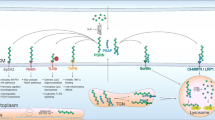Summary.
Transglutaminases are a family of enzymes which show the common capacity to catalyse the cross-linking of protein substrates. Some members of this family of enzymes are also capable to catalyse other chemical reactions for the cell life. The distribution and the role of these enzymes have been studied in numerous cell types and tissues, but only recently their expression and functions started to be investigated in the Nervous System. One of the main biochemical properties of the Transglutaminase enzymes is to form large protein aggregates that are insoluble in all known protein detergents. Recently, the Transglutaminase activity has been hypothesised to be involved in the pathogenetic mechanisms responsible for the formation of cellular inclusions present in the Corea Major and in other polyglutamine diseases. In this review we describe the biochemical mechanisms by which the Transglutaminases could play a critical role in the physiopathology of the polyglutamine diseases.
Similar content being viewed by others
Author information
Authors and Affiliations
Rights and permissions
About this article
Cite this article
Pepe, I., Occhino, E., Cella, G. et al. Biochemical mechanisms for a possible involvement of the transglutaminase activity in the pathogenesis of the polyglutamine diseases: Minireview article. Amino Acids 26, 431–434 (2004). https://doi.org/10.1007/s00726-004-0089-1
Received:
Accepted:
Published:
Issue Date:
DOI: https://doi.org/10.1007/s00726-004-0089-1




